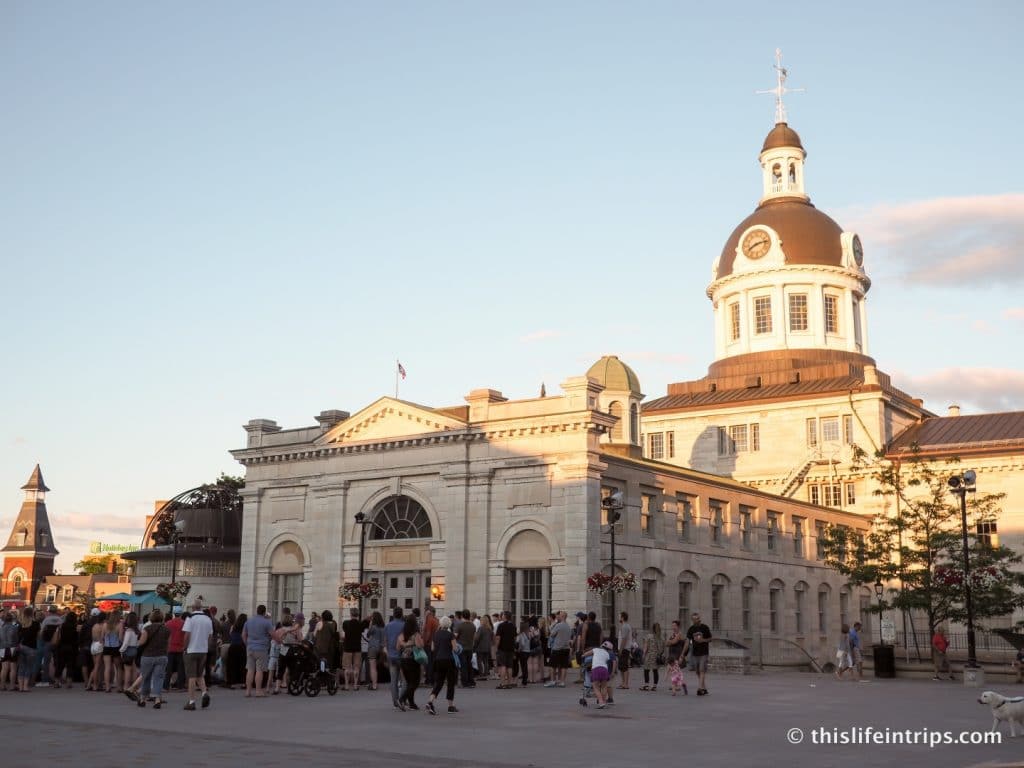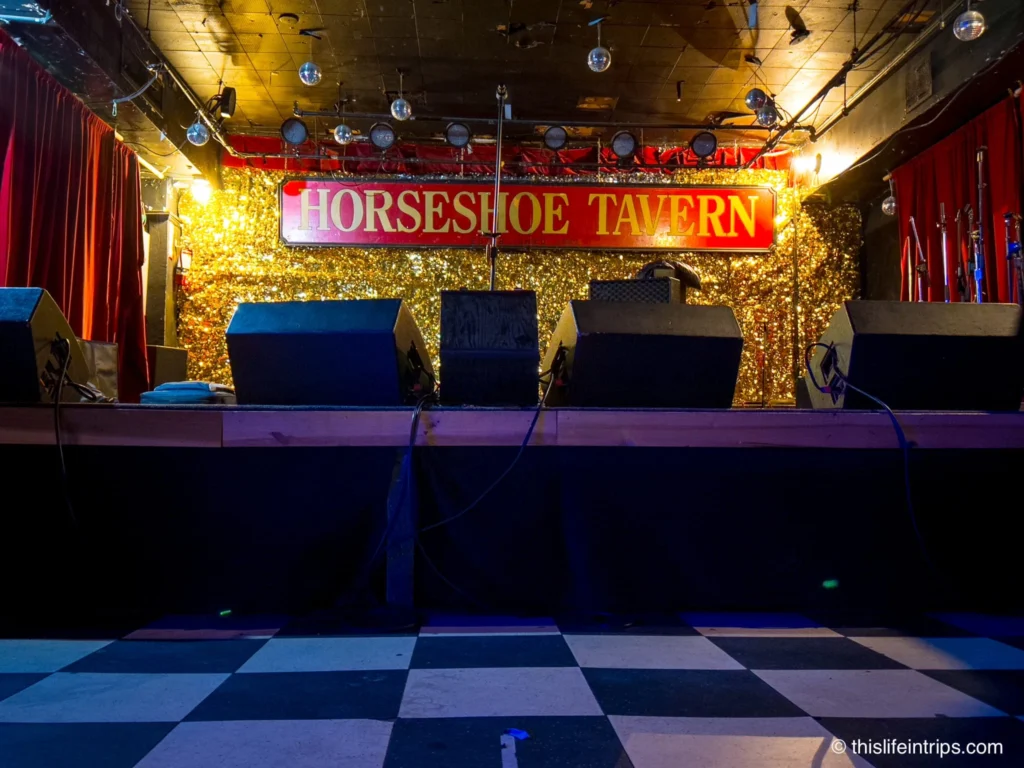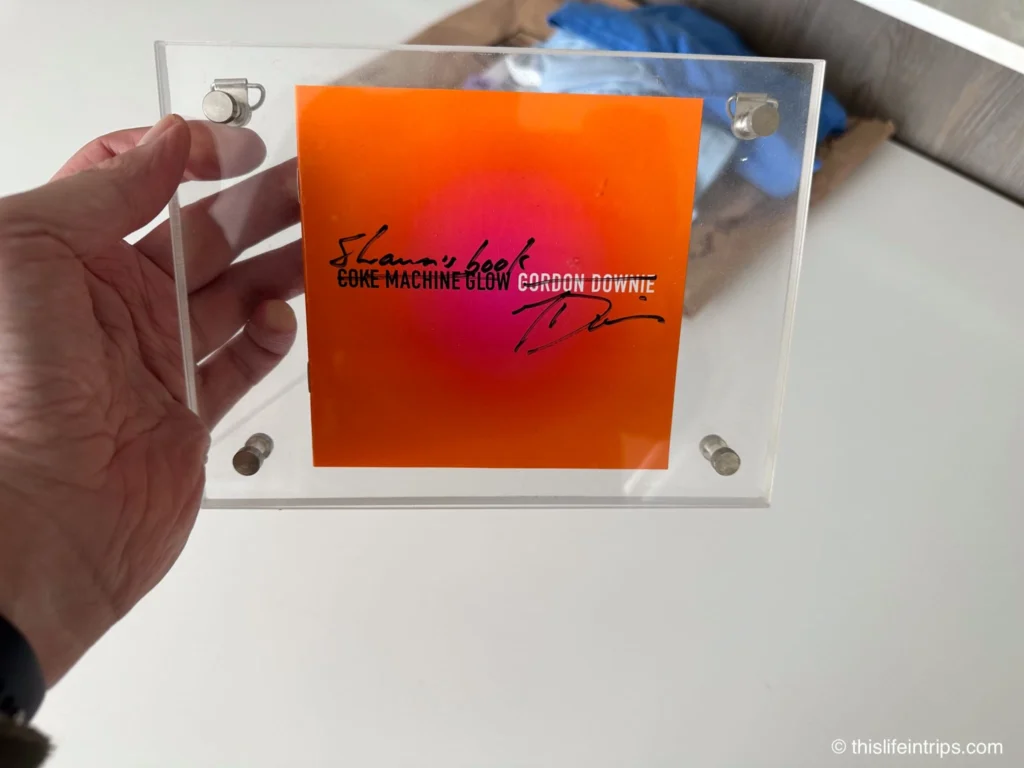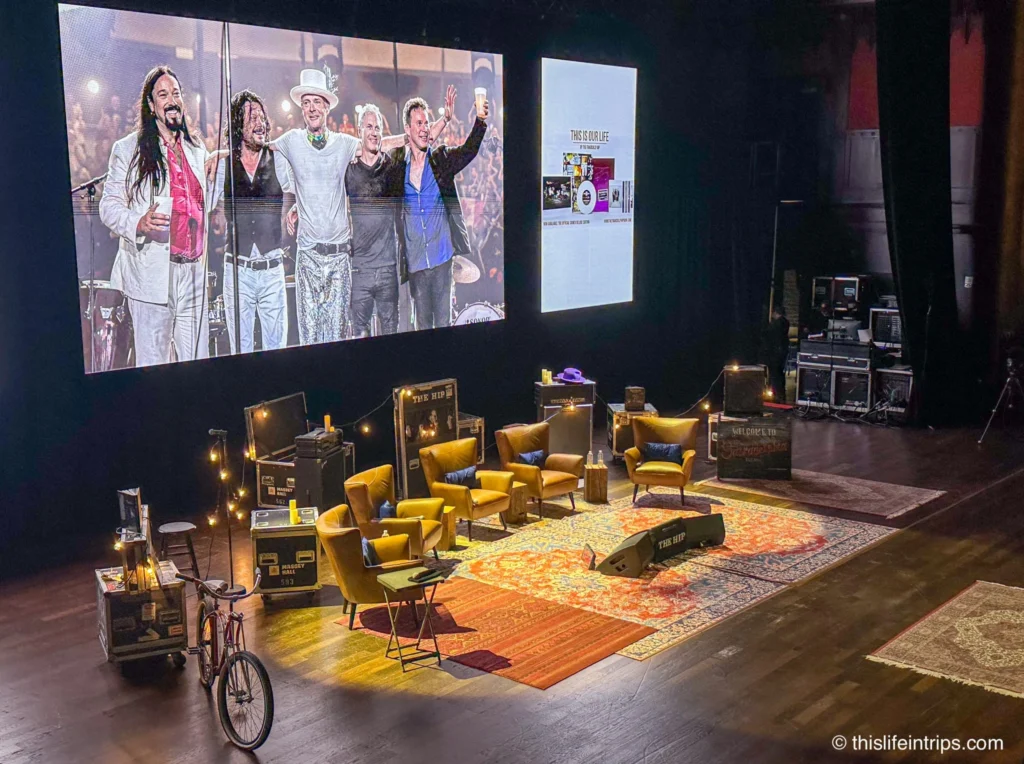This is not something I would normally cover on a travel blog, but this story deserves to be told. And after years of struggling to write it, my recent Tragically Hip travel bucket list and a TTH Top 40 podcast interview finally pushed me to revisit it.
I thought I should also explain what this band means to me—and to the country—and why we need them now more than ever. The Tragically Hip captured something uniquely Canadian: the small-town stories, the quiet heartbreaks, the overlooked history, and the pride that doesn’t shout. They’ve been a soundtrack to our identity, and in a time when that identity feels uncertain, their presence—through lyrics, legacy, and what they stood for—feels more vital than ever.
And now, in 2025, with rising tensions between Canada and the U.S., and a second Trump presidency, I find myself thinking: We could use The Tragically Hip now more than ever.
The Night Canada Stood Still
August 20, 2016. The United States was a nation divided.
With the presidential election looming, we watched horrified as the dangerous rhetoric escalated and tensions reached a boiling point. Meanwhile, in Canada, something remarkable happened—something that brought an entire country together for one last rock show. I had never felt prouder to be Canadian.

That night, as millions tuned in for political chaos south of the border, 11.7 million Canadians—one in three people—gathered in front of screens, in bars, in town squares, and at backyard parties to watch The Tragically Hip perform their final concert in Kingston. The Prime Minister was there. Entire cities shut down.
For one night, the country stood still for a band that never “made it big” outside our borders but meant everything to us.
The Depression Suite
Let’s take a step back and add some context—why that night meant so much, and what three decades of the Tragically Hip have meant to me and to Canada.
May 24, 2016. I was on my morning commute, scrolling through tweets, squeezing in some blog work, when my thumb stopped and my heart sank.
“Gord Downie, lead singer of The Tragically Hip, has incurable brain cancer.”
Shit.
I read the article in shock. And then, even more shockingly, came the announcement: Despite chemo, brain surgery, and an uncertain timeline, The Tragically Hip were going on one last tour.
My thumb immediately found my music app. Shuffle. The Hip.
Something odd happened as the news settled in. The Tragically Hip became my personal soundtrack for the rest of 2016. I played them at home, on the road, at the gym. I dusted off my guitar and worked my way through their 13-album discography.
I consumed The Hip in massive quantities, as if trying to make up for lost time.
Because, in a way, I was.
A Beautiful Thing
I first stumbled upon The Tragically Hip at 13. The music video for Courage was on MuchMusic. I was glued to the screen, watching this frantic singer in a retro Boston Bruins jersey, completely entranced. I didn’t fully understand it, but I knew The Hip were different, and I liked it.
By the time I was 15 or 16, Fully Completely was a staple in my life. I had a cassette copy that lived in my mom’s ‘92 Ford Escort—the one with the auto seatbelts because, you know, safety. That led me to their earlier albums and eventually to picking up a guitar. One of the first chord books I ever owned? The Tragically Hip discography.
The Hip were the soundtrack to my high school years. They played over the speakers in the shoe store where I worked (to the annoyance of my manager). They blared from CD players at kitchen parties and bush gatherings.
We sang along to Hundredth Meridian, throwing friends’ names into the lyrics. It was the soundtrack of my summer between Grade 11 and 12—one of the best summers of my life.
And then, at some point, I lost touch.
Loosening my Grip
As I moved on to college, my taste in music broadened. I met new friends, some of whom didn’t “get” The Hip. In fact, I found that people either loved them or just… didn’t. My band’s lead guitarist once dismissed them with, “They sing about hockey, Canada, and other dumb stuff.” That stuck with me.
Slowly, The Hip faded from my life. I wasn’t learning their songs on guitar anymore. I wasn’t hearing them at parties.

And, to be fair, the early 2000s were a rough time for rock music. Limp Bizkit, Korn, and Papa Roach ruled the charts. I never liked those bands, but I tolerated them. So why did I shelve The Hip? Why did I let go of something I had once loved?
Gord’s cancer announcement made the guilt real. I had abandoned them. And suddenly, I needed to make up for lost time.
The Kids Don’t Get it
One of the biggest criticisms of The Tragically Hip is that they never broke big in the U.S. They sold out arenas in Canada but played clubs south of the border. Some say it’s because they were too Canadian. Songs about hockey, David Milgaard’s wrongful imprisonment, reconciliation, and Canadian towns. But that’s a lazy excuse.
Their lyrics weren’t just about Canada. Misunderstood “hockey songs” such as Fireworks is about discovering girls and letting go of childhood obsessions. The Lonely End of the Rink is about Gord’s father’s distant parenting.
They weren’t Stompin’ Tom Connors singing about beer and hockey. They were poetic, intelligent, layered. Maybe they were too smart for mainstream America.
Maybe they were too smart for me at times, too.
Introduce Yerself
Even though my grip on The Hip had loosened, I was still a fan. I saw them several times live and was blown away by “It’s a Good Life if You Don’t Weaken” and In Violet Light was a resurgence for me. Then there was meeting Gord Downie.
It was in Yellowknife in 2001, when Gord was touring solo to support Coke Machine Glow.
My brother had been hired to take Gord and his band out fishing on Great Slave Lake, and when I heard about it, a friend and I rushed down to the docks for a chance to meet him. We awkwardly sipped beers in silence, too nervous to say anything.
Eventually, I just thought, Screw it, walked up, and introduced myself. He was quiet, chill, and kind—nothing like the wild showman on stage, but every bit as charismatic in his own way.

That night, we mentioned an open mic happening at a tiny local bar—maybe 50 people max. We didn’t know if he’d actually come, but as I wrapped up a set, in walked Gord. I waved him over and handed him my guitar.
True to form, he jumped right in with his band, turning the low-key open mic into something special and wild. He went off on one of his signature rants mid-song, and my ears perked up when he started talking about hauling in a massive pike earlier that day.
Later, I got the full fishing report from my brother. He said Gord couldn’t stop thanking them, and that his bass player landed a 17-pound northern pike—a story that clearly made its way into his impromptu performance. I always knew Gord pulled inspiration from real moments, but witnessing it firsthand was something else.
The whole night felt unreal, like stepping into a scene from one of his songs. The place, maybe a 100 people max capacity, was busting at its seams and went down as one of the craziest nights I have ever experienced.
And the best part? That open mic moment ended up being mentioned in The Never-Ending Present, the definitive book on Gord’s life and legacy. A surreal, full-circle experience I never saw coming.
Clayoquot Sound to Cape Spear
That final tour in 2016 was bigger than just music. It was a national moment. It was one last goodbye to an artist we were lucky enough to celebrate while he was still here.
When I watched that final Kingston show, surrounded by 11.7 million others, I had goosebumps. I felt pride, joy, sadness. And just south of the border, America was tearing itself apart. The contrast was staggering.
During that last show, Gord called out the Prime Minister, urging him to take action for Indigenous communities. It wasn’t just a moment—it was a mission. Even in his final days, when most would turn inward, Gord turned outward. He used the stage, and his remaining time, to amplify voices that had long been silenced. That’s who he was. That’s what he stood for.
That commitment didn’t end with him. It lives on through the Downie Wenjack Fund, a foundation created to build cultural understanding and a path toward reconciliation between Indigenous and non-Indigenous peoples in Canada. The Fund supports meaningful projects in schools and communities across the country—from Legacy Schools and Legacy Spaces to grassroots initiatives that keep the conversation going. It’s not just charity; it’s change, driven by education, awareness, and action.
This is Gord’s legacy. Not just as a musician, but as a citizen who believed in a better, more united Canada. One who used his platform not for praise, but for progress. And that legacy is going strong.
Ahead by a Century
On October 17, 2017, the news came. We all knew it was coming, but it didn’t make it any easier. Gord was gone. Once again, Canada mourned. Once again, we tuned in, united, to say goodbye. Alongside the nation, our Prime Minister wept.
This is Canada.
Since then, I’ve tried to introduce friends to The Hip. Some don’t get it. Some never will. And that’s okay—because The Tragically Hip were never about global stardom or chasing radio hits. They were about something more rooted, more local, more lived-in.
But for those of us who do get it, it’s a connection deeper than music. It’s a feeling that hits in the pit of your stomach when Gord’s voice cracks or when a lyric unexpectedly mirrors your own story. It’s shared glances at concerts, long drives with albums on repeat, and a sense of home wrapped in every line. It’s not just nostalgia—it’s identity.
Thankfully, The Hip has had a post-mortem resurgence with a couple of incredible documentaries—Long Time Running and No Dress Rehearsal—and a fantastic book, This is Our Life, which offers a rare look into their journey in the band’s own voice.
Together, these are helping a new generation discover what many of us have long believed: that The Tragically Hip is Canada’s best-kept secret.
Meanwhile in Canada: The Exact Feeling
Gord and The Hip had a way of bringing this country together like no one else. Their music wasn’t just about the melodies or the lyrics—it was about who we are, where we come from, and what ties us together. The good, and more often than not, the bad.
They sang about the overlooked corners of Canada, the forgotten histories, the heartbreaks we carry quietly. They held up a mirror to this country—not to flatter it, but to face it. And in doing so, they gave us a way to feel seen, to feel connected, and maybe even to do better.
Whether it was a stadium full of fans singing along in unison or a tiny bar in Yellowknife where a lucky few watched Gord turn an open mic night into something unforgettable, they had a way of making every moment feel like history in the making.

The country may never see another band—or another man—capable of doing that. In a time when division seems louder than unity and the world feels more uncertain than ever, I find myself appreciating Gord’s legacy more and more.
He reminded us that there is beauty in the everyday, that our shared stories matter, and that music has the power to bring us together when we need it most. He also reminded us to live in the moment—to be present, to feel deeply, and to hold on to the fleeting things that make life meaningful.
And for those of us who get it, his voice will never really be gone.
What say you?
Thoughts on the Tragically Hip and their lasting legacy?
Let’s hear it!
Looking for more Travel Inspiration?








The Tragically Hip is Canada – Canada is the Tragically Hip. Gord remains and always will be a Canadian legend. Even after all these years their songs just hit different. Almost 10 years later and I am still jealous you got to experience this show.
Thanks! Also, my first Hip show was in Edmonton! Miss them every day.